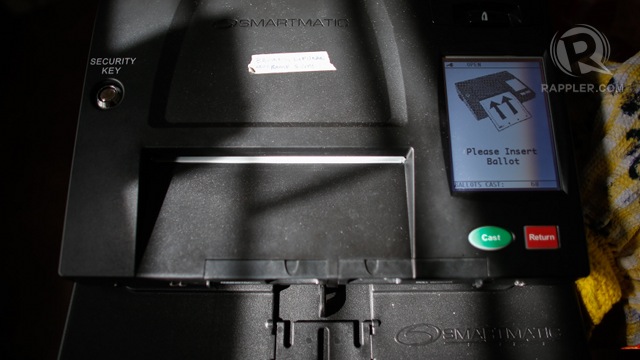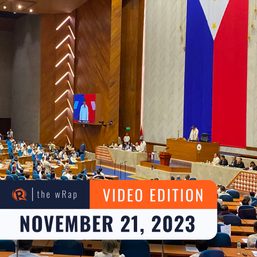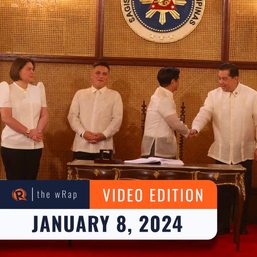SUMMARY
This is AI generated summarization, which may have errors. For context, always refer to the full article.

MANILA, Philippines – Opposition senatorial candidate former Sen Richard Gordon asked the Supreme Court to order the Commission on Elections (Comelec) to open the source code of the 2013 ballot-counting machines for review by local groups.
Gordon filed through his lawyers on Friday, May 3, a Petition for Mandamus before the high court to allow political parties to examine and review the source code.
Experts describe the source code as the recipe or “master blueprint” followed by a computer machine. It contains the instructions for counting and canvassing votes – which, if manipulated, could lead to fraud.
Comelec Chairman Sixto Brillantes Jr has said it is “too late” to allow a precinct count optical scan (PCOS) machine source code review by Philippine groups after a legal battle between two international companies held it hostage for months.
Yet Gordon said Republic Act No 9369, which amended the Automated Election Law, states that the poll body has no discretion on whether or not to allow political parties to review the source code. Gordon is the author of the amendatory law.
“The law is clear. Section 14 of the Automated Election Law says that the Comelec ‘shall promptly make the source code of that technology available and open to any interested political party or groups which may conduct their own review thereof,’” Gordon said in a statement released by the United Nationalist Alliance (UNA).
Gordon added that the word “shall” in the law means the requirement is mandatory and should be enforced by the Comelec.
The former senator said reviewing the source code is “very important to ensure honest, clean and credible elections.”
Last remedy
Gordon’s petition comes just 10 days before the May 13 polls. He said he had no other remedy but to raise the issue before the high tribunal.
“I’m very concerned why the Comelec refuses to make the source code available for review and inspection after admitting that it has the source code,” Gordon said.
“Placed in the wrong hands, the source code could be manipulated and used to systematically subvert and frustrate the people’s will,” he added.
In a phone interview with Rappler, however, Brillantes said PMP and PDP-Laban, both members of UNA, have reviewed the source code for another part of the automated election sytem. This is the source code for the consolidated canvassing system (CCS), the review of which is about to be finished.
Brillantes said Gordon’s own party, Bagumbayan, did not apply to review the source code. He said Gordon should join PMP and PDP-Laban in reviewing the CCS source code. They belong to one coalition, after all.
What about the PCOS source code? He said Gordon can have it reviewed – once it is in the Comelec’s custody. “How can the Supreme Court compel us to do something if it’s not here?”
‘No legal implications’
Brillantes has said that the local source code review is important only “for credibility purposes, not for the legality or legitimacy of the elections.”
The Comelec chief has said what is important is a source code review by an international group, which he called “totally independent.”
In February, the poll body cited a report by the Denver-based SLI Global Solutions that the Philippines’ automated elections system “can operate properly, securely and accurately” and there is no “malicious code” in the PCOS.
Yet Gordon is not the first to call for a local source code review.
Election watchdogs like the Center for People Empowerment in Governance have said that a source code review should be able to show that PCOS problems in 2010 will not be repeated.
Kontra Daya and former Comelec commissioner Gus Lagman have also called on the Comelec to allow a local source code review.
“The source code review was instituted precisely to assure the political parties and the electorate that the software to be used in counting our votes is trustworthy. It wasn’t put there out of a whim like what Brillantes makes it appear with his irresponsible statements,” said Kontra Daya spokesman Fr Joe Dizon in a previous statement. – Rappler.com
Add a comment
How does this make you feel?















There are no comments yet. Add your comment to start the conversation.